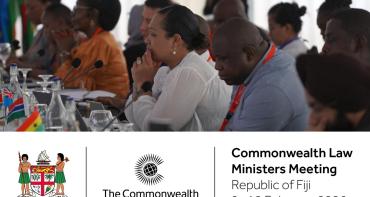A new study will examine the challenges faced by member countries in settling disputes under international commercial contracts

A new study will examine the challenges faced by member countries in settling disputes under international commercial contracts.
Led by the Commonwealth’s Office of Civil and Criminal Justice Reform, the research aims to find potential solutions, while highlighting the importance of diversity and the needs of small developing Commonwealth countries.
Senior officials of Commonwealth law ministries requested the study at their most recent gathering in October 2018. The findings will be presented at the next Commonwealth Law Ministers’ Meeting, likely to be held in October or November this year.
The report will be authored by a panel of distinguished experts, including Professor Petra Butler of Victoria University; Funke Adekoya of Aelex; Gary Born of Wilmer Cutler Pickering Hale and Dorr LLP; Robert Griffiths QC; and Audley Sheppard QC.
A task force of eminent arbitration practitioners from the various Commonwealth regions will also support and advise the lead authors. They will contribute information and perspectives on commercial arbitration across the Commonwealth.
Professor Butler said: ‘This study is a timely opportunity to gain a picture of the state of international commercial arbitration in 53 diverse countries representing all corners of the world and, based on the findings, to develop strategies to strengthen access to justice for all stakeholders, thereby encouraging participation in the global economy.’
Mr. Griffiths added: ‘This is a welcome and timely initiative. At its heart will be the principles of fairness, equity and proportionality. We hope to put in place a legal framework for the resolution of commercial disputes which will be sensitive to the individual and collective needs of the Commonwealth and its constituent members.’
The experts will review existing literature, and collect raw data through questionnaires issued to offices of Commonwealth attorneys-general, chief justices, national chambers of commerce, legal practitioners, universities, international organisations, and arbitrators and arbitration institutions.
To find out more about the study and access the questionnaires, click here.



